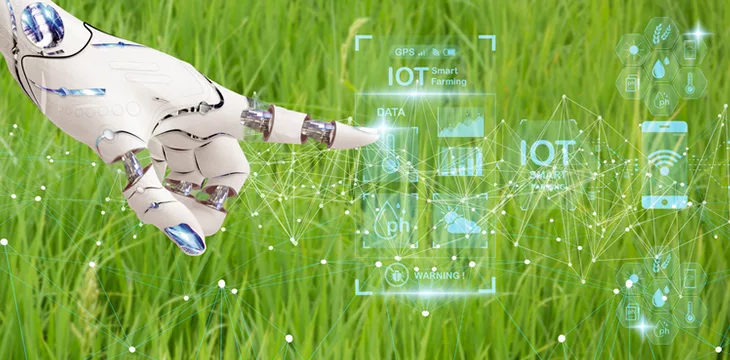|
Getting your Trinity Audio player ready...
|
Amid the meteoric rise of generative artificial intelligence (AI) systems, Japanese technology firms are bucking the trend by exploring use cases like automation in agriculture.
An increasing number of greenhouse farmers in Japan are turning to AI technology to handle labor-intensive tasks, as reported by local news outlet The Mainichi. The report highlighted the deployment of a robot developed by Agrist Inc., designed to harvest cucumbers on a farm in Hanyu, Saitama Prefecture.
Using a camera and pre-fed training data, the robot showed competence in determining the ripeness of cucumbers before seamlessly harvesting them. Takeshi Yoshida, head of the farm, noted the performance of the robot far exceeding expectations, adding that there is still room for improvement.
“We were initially afraid that the robot might cut off the cucumber stems, but it moves accurately,” said Yoshida. “We expect much out of the robot now that labor is in such short supply.”
Potential areas of improvement for Agrist’s harvesting robot is in its speed with the robot harvesting “one to three spheres roughly every two minutes.”
Agrist has expressed its confidence that more greenhouse farms across Japan will rely on its AI-based robot for harvests, especially as the country currently grapples with a labor shortage.
While Agrist has its eyes on the local market, Japanese-based technology company Inaho Inc. is keen on expanding its offering to a global client base. In line with its objectives, the company has leased an AI-based robot to a Dutch farm to harvest tomatoes with speed and accuracy as its main selling point.
Given the successes of its tomato harvester, Inaho’s COO Soya Oyama has confirmed plans to roll out a robot for harvesting asparagus in 2025.
“Starting with greenhouse cultivation where harvesting robots can move easily, examples of its introduction to open-field cultivation are likely to increase,” said Takanori Fukao, professor of robotics at the University of Tokyo. “In the future, in order to make full use of robots, it’s likely that farms will have to be prepared by taking into account the placement of crops in advance.”
Generative AI opens a can of worms
While AI for automation appears to be making steady progress in Japan, generative AI is facing heightened regulatory scrutiny and may be inching toward a whirlpool of legal trouble. Japanese authorities have since drawn attention to the risks of copyright infringement by AI developers.
Japan’s Personal Information Protection Commission (PIPC) has previously issued a warning to OpenAI over its “illegal data collection methods” with 70% of citizens pushing for tighter regulations for AI companies. Experts have touted the use of blockchain technology as one way to promote safe AI data collection, usage, and storage.
In order for artificial intelligence (AI) to work right within the law and thrive in the face of growing challenges, it needs to integrate an enterprise blockchain system that ensures data input quality and ownership—allowing it to keep data safe while also guaranteeing the immutability of data. Check out CoinGeek’s coverage on this emerging tech to learn more why Enterprise blockchain will be the backbone of AI.
Watch: Blockchain & AI unlock possibilities

 07-06-2025
07-06-2025 





